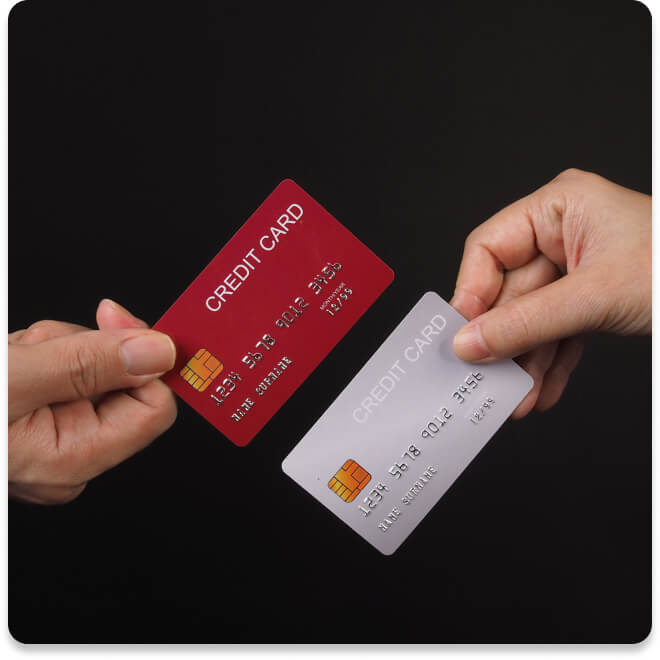Qualifying for a credit card is a privilege you earn through establishing good credit. However, if you don’t have any credit yet, you may find it challenging to obtain your first card.
While some people start their credit journey with a secured credit card product that requires a security deposit as collateral, some choose to become an authorized user. An authorized user account provides access to credit through a primary account holder’s card, which can help the added user build credit history.
When people add an authorized user to their credit card account, it’s typically because that person may not be able to get credit on their own just yet. For instance, parents will add their teenaged children to their accounts to help them establish credit history. There are other reasons for adding authorized users, including earning an account bonus and the potential to earn more rewards on rewards credit cards.
Before you add an authorized user, it’s important to understand how authorized user activity can impact your credit. Learn more about the rules around adding an authorized user, how the process works, and if it’s the right choice for you.
What is an authorized user?

An authorized user is a person added to an existing credit card account by a primary cardholder. Authorized users can access the available credit or a specific portion of it, and they receive their own personal card. Any spending they do is added to the main account balance.
How does it work?
The primary account holder is the person who originally opened up the account. They can then decide to invite authorized users to share the account. Ultimately, the primary account holder is the main point of contact for the card, and they are solely responsible for making sure the bill is paid. This includes charges made by any authorized users on the account.
Authorized users can use the card for purchases and register a login or use the card’s mobile app to track spending. However, they usually don’t have access to all the same functions of the primary account holder. With some cards, the primary account holder may be able to set spending limits for their authorized users.
How does this differ from joint accounts?
Authorized users are different from joint credit card account holders. With joint account holders, each person has an equal responsibility for the card’s management. A primary account holder can also remove authorized users at any time by making a request with the credit card issuer. With joint accounts, the two owners are not able to remove one another unless both parties close the account together.

Who can be an authorized user on my credit card?
You can add anyone as an authorized user on your credit card account, as long as they meet the credit card issuer’s minimum age requirements. They will not be subject to the same credit check or income requirements as they would if they applied for a card of their own.
An authorized user also doesn’t have to live at the same address as you or even be a close relative. However, it should be someone with whom you have a close relationship and can work out a payment arrangement for when they use the card.
Authorized users are typically children, spouses or partners, or other close relatives or friends.
Does an authorized user have any specific responsibilities?
Authorized users don’t have any specific responsibilities as far as the credit card account is concerned. If there are any issues such as missed payments or if there is an error or fraudulent charge, the primary account holder must contact the issuer directly to resolve these.
Consider creating an arrangement or agreement with your authorized user as to how they’ll pay you for their purchases. This document can also include basic card usage rules such as not letting someone else access the account and ensuring the account information and physical card are secure.
How do I add/remove an authorized user onto my credit card?
If you wish to add or remove an authorized user from your credit card account, you need to contact the card issuer. You may be able to put in a request via your online account portal or app. Otherwise, you can simply call the customer service number on the back of your credit card.
When you add an authorized user, it will take a set number of business days—the issuer may specify—for them to receive their card in the mail. Some higher-end rewards credit cards may charge a fee for adding on an authorized user.
If you decide to remove an authorized user, their card will be deactivated.
How do authorized users affect credit scores?

Adding an authorized user won’t directly affect your credit score. Once you add someone to your account, any account activity reported to the three main credit bureaus (Experian, Equifax, and Transunion) is sent to both yours and your authorized users’ respective credit files.
In many cases, the reason to add an authorized user to your credit card account is to help them build up their credit through an existing account.
If you keep your account in good standing with on-time payments, this can help your authorized user build credit and see incremental credit score improvements. On the other hand, if you make late payments, it will have a negative impact on your authorized user’s credit—and yours.
Authorized user credit score
Becoming an authorized user on a credit account can help people plump up a slim credit file or help rehabilitate a bad credit score.
For starters, your account’s available credit will become part of their available credit total, which in turn can help lower their overall credit utilization ratio. Credit utilization refers to the percentage of available credit being used. A lower ratio, typically 30% or less, will have a better impact on your score.
Being added to someone’s credit card account can kickstart your credit history if you’re new to credit. Age of credit is a factor in the credit scoring calculation, so starting as early as legally possible may be helpful. This is why a parent who adds on their teen may help them develop a good credit score by the time they are ready to apply on their own.
Keep in mind that if the primary cardholder doesn't have good credit habits, this will be reflected on the authorized user’s credit report, too.
Primary cardholder credit score
As the primary cardholder, you are ultimately in charge of your credit score regardless of whether or not you add an authorized user. However, there is an indirect way that having an authorized user may impact you.
If the authorized user runs up a large credit card bill and refuses to help pay the balance, you may end up with a higher debt total. A larger balance could increase your credit utilization ratio, and therefore cause your credit score to drop.

Should you add an authorized user to your account?
Adding an authorized user to your account is not a decision to take lightly. It’s important to feel comfortable with the knowledge that if the person runs up the bill, you are the one who is ultimately responsible to pay for it.
This is why people often consider adding a family member or close friend to an account. This allows you to discuss personal finance basics and to create a payment arrangement for when they make purchases. Your game plan may also include asking them to review their free credit reports periodically, so they know when they may be eligible to obtain their own credit card.
There are potential benefits to adding a responsible authorized user to your account, particularly if you have a rewards credit card or a cash back card. Any eligible purchases that your authorized user makes will count toward your earnings. Some cards also offer a cash back or reward bonus for adding on an authorized user.







